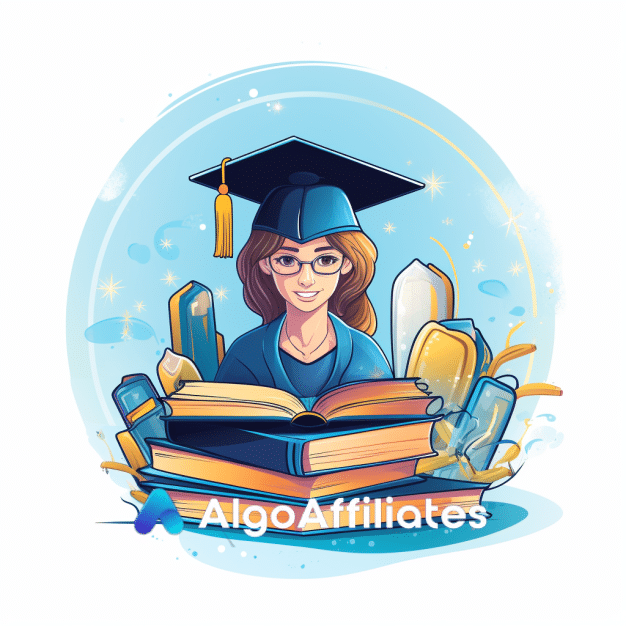Introduction to Education Affiliate Programs
In today’s digital era, the boundaries of learning and education have expanded well beyond the conventional classroom. With the rise of the internet and the proliferation of eLearning platforms, education has become more accessible, flexible, and tailored to the needs of learners from all walks of life. Central to this eLearning revolution is the emergence of education affiliate programs, which have paved the way for a symbiotic relationship between education providers and marketers. Let’s delve into this captivating world and explore its significance.
The Rise of Online Education
The past decade has witnessed a significant uptick in online education. From full-fledged degrees to short skill-based courses, eLearning platforms cater to a myriad of educational needs. Students, professionals, and lifelong learners are increasingly turning to online platforms to enhance their knowledge and skills, driven by the convenience of learning at one’s own pace and the vast array of courses available.
The Role of Affiliate Marketing in Education
Enter affiliate marketing—a model where individuals or entities (affiliates) promote a product or service and earn a commission for every sale or action made through their referral. In the context of online education, this translates to affiliates promoting courses, educational platforms, or learning tools. Given the expansive growth of online education, the affiliate marketing realm within it is ripe with opportunities. Affiliates, ranging from bloggers and content creators to educators themselves, can align with eLearning platforms to promote courses and earn commissions.
Importance of Choosing the Right Education Affiliate Program
Not all education affiliate programs are created equal. With a multitude of platforms and courses available, it’s imperative for affiliates to discerningly choose programs that align with their audience’s interests and needs. A successful affiliation doesn’t merely hinge on promotion but on genuinely believing in the value of the course or platform being endorsed. After all, credibility and authenticity are paramount in the world of affiliate marketing.
In conclusion, as online education continues its upward trajectory, education affiliate programs stand out as a promising avenue for marketers and educators alike. By bridging the gap between education providers and potential learners, these programs are playing an instrumental role in shaping the future of education. Whether you’re an affiliate marketer, a content creator, or an educator, understanding the nuances of education affiliate programs can open up a world of opportunities.

Features of Top Education Affiliate Programs
As online education becomes increasingly prominent, so does the appeal of education affiliate programs. For those keen on diving into the world of affiliate marketing in the education sector, it’s vital to understand the hallmarks of a quality program. After all, partnering with the right platform can be the difference between a successful affiliate venture and a lackluster one. Let’s explore the distinctive features of top-tier education affiliate programs.
Broad Range of Courses and Subjects
A standout feature of premier education affiliate programs is the extensive range of courses and subjects they offer. Catering to a diverse audience, from students to professionals to hobby learners, these programs ensure there’s something for everyone.
- Variety: The best platforms provide courses spanning various disciplines, from science and technology to arts and humanities.
- Specializations: Top-tier programs often feature niche courses or specializations, catering to specific career paths or interests.
Competitive Commission Structures
One of the primary motivations for affiliates is, understandably, the potential for earnings. Leading education affiliate programs offer attractive commission structures.
- High Commission Rates: Top programs offer competitive rates, ensuring affiliates are well-compensated for their efforts.
- Tiered Structures: Some platforms offer tiered commission structures, where affiliates can earn more as they refer more users.
- Recurring Commissions: In some cases, affiliates might earn a recurring commission for subscription-based courses or platforms.
Support and Resources for Affiliates
Support can make or break an affiliate’s experience. Recognizing this, the best education affiliate programs prioritize providing extensive support to their partners.
- Affiliate Dashboards: These dashboards allow affiliates to track their referrals, earnings, and payouts seamlessly.
- Marketing Collateral: Top programs provide affiliates with marketing materials like banners, promotional content, and even course samples.
- Dedicated Support: Having a dedicated affiliate manager or support team can be invaluable, offering guidance and addressing queries.
Flexible Payout Options
For affiliates, how and when they receive their earnings is crucial. Renowned programs provide flexibility in this regard.
- Multiple Payout Options: From bank transfers to digital wallets, multiple payout methods cater to a global affiliate base.
- Timely Payouts: Affiliates shouldn’t have to wait inordinately long for their earnings. Top programs ensure timely, consistent payouts.
Transparency and Credibility
Last but not least, the credibility of the education platform and transparency in its operations is vital.
- Clear Terms: Affiliates should be fully aware of the program’s terms, with no hidden clauses or conditions.
- Reputable Courses: The quality of courses on the platform reflects on the affiliate. Top programs feature courses that are credible, well-structured, and often accredited.
In summation, while the allure of education affiliate programs is evident, the onus is on prospective affiliates to choose wisely. By prioritizing programs that exhibit the features above, affiliates can embark on a rewarding journey, both in terms of earnings and the satisfaction of promoting quality education.
10 Best Education Affiliate Programs
The online education industry has burgeoned over the past decade, with numerous platforms emerging to cater to different educational needs. If you’re looking to venture into affiliate marketing within the education sector, aligning with the right platform can amplify your success. Here, we spotlight ten of the best education affiliate programs available today.
 Algo Affiliates
Algo Affiliates
In a world teeming with affiliate programs, Algo Affiliates has managed to make a significant mark, especially in the financial and education sectors. Let’s zoom in on how Algo Affiliates stands out when it comes to promoting education, particularly in the realm of financial markets and trading.
Introduction to Algo Affiliates
Algo Affiliates is a top affiliate network that predominantly focuses on financial offers, encompassing everything from crypto and forex trading to stock markets. But what sets it apart is its commitment to financial education, helping potential traders understand the intricacies of the market.
Financial Education is Paramount
Trading, particularly in forex and cryptocurrencies, is not a simple endeavor. It’s laden with complexities that require an in-depth understanding. Recognizing this, Algo Affiliates places a strong emphasis on education.
- Comprehensive Learning Resources: Algo Affiliates offers a plethora of educational materials, from webinars to e-books, ensuring that traders have a holistic understanding before diving into the trading world.
- Updated Market Insights: With the financial market being incredibly dynamic, Algo Affiliates ensures its users are always abreast with the latest trends and shifts through timely market insights.
Why Algo Affiliates Stands Out in the Education Sector
- Expert-driven Content: The educational content on Algo Affiliates is curated by experts with years of experience in the financial sector. This ensures credibility and reliability.
- Interactive Learning: Algo Affiliates understands that passive learning doesn’t cut it. Hence, they offer interactive webinars and Q&A sessions, allowing users to engage and clear doubts in real-time.
- Tailored Educational Paths: Recognizing that every trader is at a different stage, Algo Affiliates provides learning paths tailored to different experience levels, from beginners to seasoned traders.
Benefits of Partnering with Algo Affiliates
For those in the education and financial sectors, partnering with Algo Affiliates can be immensely rewarding.
- High Commissions: Algo Affiliates offers one of the most competitive commission structures, ensuring partners are lucratively rewarded for their referrals.
- Diverse Offerings: From crypto to commodities, Algo Affiliates spans a wide range of financial products, giving partners an array of options to promote.
- Supportive Affiliate Managers: Algo Affiliates boasts a team of dedicated affiliate managers, ensuring partners have the support and resources they need for success.
Algo Affiliates isn’t just another affiliate program in the financial sector. It’s a platform that bridges the gap between complex trading mechanisms and potential traders, emphasizing the importance of education. For those passionate about financial education and looking for a rewarding affiliate program, Algo Affiliates is undoubtedly worth considering.
Coursera
One of the pioneers in online education, Coursera offers courses from world-renowned universities and institutions.
- Courses Offered: From individual courses to professional certifications and degrees.
- Commission: Competitive commission rates with bonuses for high-performing affiliates.
Udemy
Udemy boasts a vast array of courses on diverse subjects, making it a favorite among lifelong learners.
- Courses Offered: Over 130,000 courses on topics ranging from coding to painting.
- Commission: Attractive commission rates with performance-based incentives.
Teachable
Teachable provides a platform for creators to design and sell their courses.
- Courses Offered: Varied, based on individual creators.
- Commission: A lucrative recurring commission for every new customer referred.
LinkedIn Learning
A subsidiary of the professional networking giant, LinkedIn Learning offers courses tailored to career advancement.
- Courses Offered: Business, technology, creative courses, and more.
- Commission: Competitive rates with added benefits for high-performers.
Edureka
Focusing on IT and software, Edureka provides live, instructor-led courses.
- Courses Offered: Big Data, AI, Cloud Computing, and other tech subjects.
- Commission: High commission rates, especially for bulk referrals.
Treehouse
Treehouse is tailored for those looking to venture into web design, web development, and coding.
- Courses Offered: Coding, app development, and more.
- Commission: Attractive recurring commission model.
Shaw Academy
Offering accredited courses, Shaw Academy has made a mark in the online education space.
- Courses Offered: Photography, finance, design, and more.
- Commission: Competitive commission rates with a structured tier system.
Skillshare
A community-driven platform, Skillshare focuses on short, impactful courses.
- Courses Offered: From creative arts to entrepreneurship.
- Commission: Lucrative rates with added bonuses.
Kajabi
Kajabi is a comprehensive platform that allows creators to market, sell, and deliver their courses.
- Courses Offered: Dependent on individual creators.
- Commission: A rewarding affiliate program with recurring commissions.
In conclusion, the above-listed platforms represent the crème de la crème of education affiliate programs. Affiliates must evaluate each based on their audience’s preferences, potential commission earnings, and the credibility of the platform. By making an informed choice, affiliates can ensure a lucrative and fulfilling venture in the realm of online education.

How to Maximize Earnings with Education Affiliate Programs
Tapping into the potential of education affiliate programs can be a lucrative endeavor, especially given the rise of online education. But simply joining an affiliate program doesn’t guarantee success. Strategic planning, continuous learning, and effective promotion are critical. Here’s a comprehensive guide to maximizing your earnings with education affiliate programs.
1. Choose the Right Program
Your choice of affiliate program can make or break your affiliate marketing journey.
- Research and Evaluate: Before joining, research various programs. Look for reputable platforms with a track record of timely payments and good support.
- Consider Commission Structures: Opt for programs that offer competitive commissions. Some might also offer recurring commissions, which can lead to sustained income.
2. Understand Your Audience
Promoting education courses and platforms require a deep understanding of your audience.
- Demographics: Understand the age, location, and educational background of your audience.
- Preferences: Gauge what subjects or courses your audience is more inclined towards.
3. Use High-Quality Content for Promotion
Content remains king, even in affiliate marketing.
- Educational Blog Posts: Write in-depth guides or reviews about the courses or educational platforms you’re promoting.
- Video Content: Video reviews or tutorials related to the course content can engage users more effectively.
4. Employ SEO Techniques
A majority of your organic traffic will come from search engines.
- Keyword Research: Use SEO tools to find keywords related to the courses or platforms you’re promoting.
- Optimize Content: Ensure that your content, be it blog posts or product descriptions, is optimized for these keywords.
5. Leverage Social Media
With billions of users, social media platforms are gold mines for affiliate marketers.
- Promotional Posts: Share content related to the education courses or platforms, incorporating your affiliate links.
- Engage With Followers: Respond to comments, engage in discussions, and build a community around your niche.
6. Offer Exclusive Deals or Bonuses
If the affiliate program allows, offer special deals or bonuses for those who enroll or purchase through your affiliate link.
7. Track, Analyze, and Adapt
The affiliate marketing landscape is dynamic. What works today might not work tomorrow.
- Use Analytics Tools: Track the performance of your affiliate links. Identify which strategies are working and which aren’t.
- Adapt Accordingly: If a particular strategy isn’t yielding results, be ready to pivot.
8. Stay Updated
The world of online education is continuously evolving.
- Follow Trends: Keep abreast with the latest in the education sector.
- Update Content: Regularly update your content to reflect any changes or new features in the courses or platforms you’re promoting.
9. Build Trust
Your audience should see you as a credible source of information.
- Be Transparent: Always disclose that you’re using affiliate links.
- Prioritize Value: Ensure that you’re promoting courses or platforms that genuinely offer value to the audience.
10. Continuous Learning
The affiliate marketing realm is vast, with a constant influx of new techniques and strategies.
- Stay Educated: Attend webinars, read articles, and join affiliate marketing communities to learn from other successful affiliates.
Pitfalls to Avoid in Education Affiliate Marketing
Education affiliate marketing offers a promising avenue for income generation, but it also comes with challenges. The sector’s credibility demands affiliates act responsibly and knowledgeably. Let’s explore common pitfalls in education affiliate marketing and how to sidestep them.
1. Promoting Low-Quality Courses or Platforms
- The Temptation: High commissions can make less reputable courses seem attractive.
- The Solution: Always prioritize the value and quality of a course over commission rates. Your audience’s trust is paramount.
2. Ignoring Audience Needs
- The Temptation: Pushing popular courses even if they don’t align with your audience’s needs.
- The Solution: Understand your audience’s preferences, needs, and educational goals. Tailor your promotions accordingly.
3. Over-Promotion
- The Temptation: Flooding your content with affiliate links hoping for higher conversions.
- The Solution: Use affiliate links judiciously. Content should provide value first; promotion is secondary.
4. Neglecting Content Quality
- The Temptation: Quick, superficial content creation to embed affiliate links.
- The Solution: Create in-depth, valuable content. This not only builds trust but also aids in SEO.
5. Not Staying Updated
- The Temptation: Relying on outdated information about courses or educational platforms.
- The Solution: Regularly review and update your content. Education trends, course content, and platform features can change.
6. Failing to Disclose Affiliate Relationships
- The Temptation: Skipping disclosure to make promotions seem more organic.
- The Solution: Always clearly disclose your affiliate relationships. It builds trust and is a legal requirement in many jurisdictions.
7. Ignoring Data and Analytics
- The Temptation: Assuming that all promotions are equally effective.
- The Solution: Regularly review analytics to understand which promotional tactics work best. Adjust your strategy based on data.
8. Over-relying on a Single Traffic Source
- The Temptation: Solely focusing on one platform or channel because it’s currently performing well.
- The Solution: Diversify your promotional channels to avoid sudden dips in traffic or income.
9. Not Re-engaging with Past Leads
- The Temptation: Focusing solely on acquiring new leads.
- The Solution: Engage with past or current learners, offering them new courses or advanced modules. They can be a valuable source of repeat income.
10. Failing to Network
- The Temptation: Operating in isolation, avoiding affiliate networks or communities.
- The Solution: Engage with other affiliates, join communities, and participate in webinars. Learning from others can enhance your strategies.

Comparing Top Education Affiliate Programs
The affiliate marketing landscape in the education sector is expansive, with numerous programs vying for attention. As a potential affiliate, you must distinguish the best from the rest. Here’s a comparative analysis of top education affiliate programs to help you make an informed decision.
1. Commission Structures
- Fixed vs. Percentage: Some programs offer a fixed commission for each successful referral, while others offer a percentage of the sale.
- Recurring Commissions: Certain programs offer recurring commissions if the referred student enrolls in multiple courses or a subscription-based platform.
- Tiered Structures: As you generate more sales, some programs may offer higher commission rates.
2. Cookie Duration
- Short-Term vs. Long-Term: A longer cookie duration (e.g., 90 days) means that if a potential student clicks your link today but enrolls three months later, you still earn a commission.
- Lifetime Cookies: Some programs offer lifetime cookies, ensuring commissions from all future purchases by the referred student.
3. Quality and Range of Educational Content
- Course Variety: From tech courses to arts and humanities, which program offers a range that aligns with your audience?
- Reputation: Programs affiliated with prestigious institutions or renowned educators might be more appealing.
4. Support and Resources for Affiliates
- Training: Does the program offer webinars, tutorials, or other training resources?
- Promotional Materials: Look for programs that provide banners, ads, and other promotional materials.
- Dedicated Support: A responsive affiliate manager or support team can be invaluable.
5. Payment Terms and Conditions
- Payment Threshold: Some programs have a minimum amount you need to earn before you receive payment.
- Payment Methods: Whether it’s direct bank transfer, PayPal, or another method, ensure it suits you.
- Payment Frequency: How often are commissions paid out – monthly, quarterly, or upon request?
6. Platform’s User Interface and Experience
- Ease of Use: A straightforward dashboard makes tracking referrals, commissions, and payouts easier.
- Real-time Tracking: Instantly view how many clicks your links are getting and how many convert.
7. Reviews and Feedback
- Affiliate Testimonials: Look for reviews from other affiliates to gauge their satisfaction with the program.
- Student Reviews: High student satisfaction can make promotions more effective.
8. Flexibility and Exclusivity
- Exclusivity Clauses: Some programs might prohibit you from promoting competing education platforms.
- Flexibility: Programs that allow multiple promotion methods, from email marketing to social media, offer greater flexibility.
9. Geographical Limitations
- Global vs. Regional: While some programs might have a global reach, others might cater to specific regions or countries.
- Currency and Language Support: Can you promote courses in various languages or currencies?
10. Mobile Optimization
- Mobile Tracking: As more students use mobile devices, ensure the program supports mobile tracking.
- Mobile Promotions: Check if you can promote through mobile ads or app-based platforms.
Conclusion
When comparing top education affiliate programs, it’s crucial to consider your audience’s needs, your promotional strategies, and the program’s terms. By comprehensively analyzing each program based on the criteria above, you’ll be better positioned to choose the one that aligns with your goals and offers the best earning potential.
Future Trends in Education Affiliate Marketing
The realm of education has evolved dramatically over the past decade, particularly with the advent and proliferation of online learning platforms. With these changes, the landscape of education affiliate marketing is also shifting. Let’s dive into the anticipated trends in education affiliate marketing that affiliates should be aware of to stay ahead in the game.
Growth of Micro-Credentials and Nanodegrees
The Rise of Bite-Sized Learning
As learners look for specific skillsets rather than broad degrees, micro-credentials and nanodegrees will gain traction.
Affiliates will see more opportunities to promote these focused courses.
Collaborations with Industries
Educational platforms will collaborate with industries to design these courses, ensuring relevance.
Increased Use of AI and Data Analytics
Personalized Affiliate Recommendations
AI can help in providing tailored course recommendations, increasing conversion rates for affiliates.
Predictive Analytics
By understanding learner behavior, affiliates can better target potential students with courses they’re likely to enroll in.
Expanding Global Reach
Multilingual Course Promotions
As e-learning breaks geographical barriers, affiliates will promote courses in multiple languages.
Cultural Customization
Marketing materials will be tailored to resonate with various cultural nuances, making promotions more effective.
Enhanced Affiliate Support and Training
Regular Webinars and Workshops
To keep affiliates updated, platforms will conduct frequent training sessions.
Dedicated Affiliate Managers
Personalized support will be a trend, ensuring that affiliates have all the resources they need.
Growth in Augmented and Virtual Reality Courses
Immersive Learning Experiences
The promotion of courses offering AR and VR experiences will rise as these technologies become more mainstream in education.
Higher Affiliate Commissions
Such courses might have premium pricing, translating to higher commissions for affiliates.
Ethical and Transparent Affiliate Practices
Clear Disclosure Policies
Affiliates will be encouraged, or in some regions, mandated, to clearly disclose affiliate relationships to maintain trust.
Avoiding Misinformation
Platforms will emphasize accurate representation of courses to maintain their reputation.
Mobile-First Approach
Mobile-Optimized Affiliate Dashboards
Affiliates will have tools tailored for mobile devices, reflecting the shift in user behavior.
App-Based Promotions
As learners increasingly use apps, affiliates will have more opportunities to promote within mobile applications.
Focus on Lifelong Learning
Promoting Continuous Learning Paths
Instead of one-off courses, affiliates will promote comprehensive learning paths catering to lifelong learners.
Subscription-Based Models
Affiliates might see more opportunities to promote subscription models, offering a recurring commission structure.
The future of education affiliate marketing is poised for dynamic shifts, reflecting changes in both technology and learner preferences. Staying abreast of these trends will ensure that affiliates remain relevant, effective, and successful in their promotional endeavors.
Conclusion: Making the Most of Education Affiliate Opportunities
In an era where the thirst for knowledge is insatiable and the modes of acquiring it are constantly evolving, the significance of education affiliate marketing cannot be overstated. From traditional classroom settings to the vast expanse of e-learning platforms, education is witnessing a transformative phase, and affiliate marketers stand at the forefront of this change.
The world of education affiliate marketing offers a plethora of opportunities, but like all avenues, it’s essential to approach it with diligence, understanding, and a genuine desire to add value to potential learners. It’s not merely about pushing a product; it’s about guiding individuals to the best possible resources to fulfill their educational aspirations.
To truly thrive in this domain:
- Stay Updated: The education sector is dynamic. New courses, learning methodologies, and platforms emerge regularly. Affiliates must stay informed to offer the best to their audience.
- Build Trust: Authenticity is the bedrock of successful affiliate marketing. Recommend courses and platforms that you genuinely believe in, and that credibility will reflect in your success.
- Diversify: While specialization has its merits, diversifying your affiliate portfolio in education can help tap into various niches, maximizing earning potential.
- Invest in Continuous Learning: Just as you promote the idea of learning, invest in your personal and professional growth. Understand the intricacies of the platforms you promote, the subjects they offer, and the audiences they cater to.
- Engage and Listen: Engage with your audience, listen to their feedback, and understand their needs. This will not only help in tailored promotions but also in building a loyal audience base.
As we move further into the digital age, the boundaries of classrooms are expanding beyond four walls. Education is becoming more accessible, flexible, and diverse. For affiliate marketers, this signifies an expansive playground with limitless potential. With the right approach, tools, and mindset, the world of education affiliate marketing can be both rewarding and fulfilling.
In essence, as the global landscape of education transforms, so do the opportunities within it. Affiliates now have the chance to be more than just marketers; they can be influencers, guides, and crucial decision-enablers in a learner’s journey. Making the most of these education affiliate opportunities means embracing these roles wholeheartedly and steering the future of learning in the right direction.
Frequently Asked Questions (FAQ)

-
What is an education affiliate program?
- An education affiliate program allows individuals or entities to promote educational platforms, courses, or tools and earn a commission for every sale or sign-up made through their referral.
-
How do I become an education affiliate marketer?
- Most educational platforms or tools offer affiliate programs. Sign up for their affiliate program, get approved, and start promoting their products/services using the affiliate links provided.
-
Are education affiliate programs profitable?
- Yes, with the growing demand for online education and e-learning tools, education affiliate programs can be quite lucrative. However, earnings vary based on the platform, commission structure, and your marketing efforts.
-
How do I choose the best education affiliate program to join?
- Research the credibility of the educational platform, their commission structure, the quality of the courses/tools they offer, and their affiliate support systems.
-
Can I join multiple education affiliate programs simultaneously?
- Yes, many affiliate marketers diversify their portfolios by promoting multiple courses or platforms to maximize their earning potential.
-
How do commissions work in education affiliate programs?
- Commissions can be based on a flat rate, a percentage of the sale, or a recurring commission for subscription-based platforms. Each program will have its own commission structure.
-
Is there a cost to join these programs?
- Most reputable education affiliate programs are free to join. Be wary of programs that ask for a joining fee.
-
How do I track my sales or referrals?
- Upon joining an affiliate program, you’re typically provided with a dashboard where you can track clicks, conversions, and commissions earned.
-
What marketing strategies work best for promoting educational content?
- Content marketing, email marketing, PPC advertising, and social media promotions are effective. However, always prioritize value and authenticity to build trust with your audience.
-
Do education affiliate programs provide marketing materials?
- Many programs offer promotional materials like banners, ads, or even content snippets to help affiliates in their marketing efforts. Always check with the specific program for available resources.







